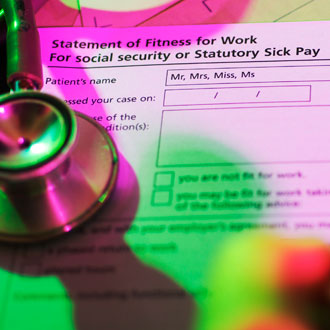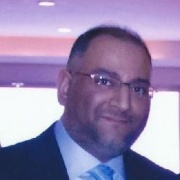Should patients who refuse treatment have their benefits cut?


YES
I recently wrote the death certificate for one of my patients, an alcoholic, who went from working and drinking hard, to drinking too much and losing his job. I signed him off for rehabilitation, but he soon seemed to realise that he could stay off work with benefits essentially paying him to remain semi-comatose at tax payers’ expense, drinking all day.
I support and encourage any addict who wants to turn their life around – as long as they are engaging with drug and alcohol services, I have no problem signing them off to allow them to focus fully on their recovery and return towards being productive members of society.
But I firmly believe that benefits should be dependent on the patient engaging with rehabilitation services. I don’t usually agree with Conservative health policy, but the party seem to share this principle. Their manifesto promises to review whether patients with ‘long-term, yet treatable conditions’, including drug and alcohol addiction or obesity could have their benefits reduced if they refuse recommended treatment.’
Giving benefits to those not seeking help may be enabling their addictions. After all, I have never met a patient who can buy drugs or alcohol without money. Drug addicts and alcoholics get £435m in sickness benefit, but surely some of that would be better spent on improved rehabilitation facilities? The Government should provide homeless shelters and meals to those not getting benefits, so they can’t fund their habits but won’t be forced further into poverty.
Dealing specifically with the issue of obesity, the cost to the UK economy of overweight and obesity was estimated at £15.8 billion per year in 2007, including £4.2 billion in costs to the NHS. Patients shouldn’t be signed off for obesity unless they are morbidly obese and need time for recovery from bariatric surgery.
But prior to surgery being suggested, any reason to get up and out of the house can only be helpful, with work-related activities helping the patient to expend their energy in a positive way. Paying benefits to those at risk could be dependent on them spending time in the gym on a daily basis if they’re not in work.
To those concerned that the proposals would increase GPs’ workload by making GPs into inspectors, I’d say that monitoring can be done by the rehabilitation facility or the gym in the form of electronic registers. The Department for Work and Pensions can deal with the financial side if patients don’t attend. All the GP would do is decide whether the patient is fit for work, as they do now.
If my patient had been forced to return to work rather than given money to fund his lifestyle choice, I can’t help thinking that perhaps he would still be alive now.
Dr Neman Khan is a GP in Woking, Surrey

NO
The Conservative Party’s proposals fail to acknowledge that working with addictions is far too complex to be solved by a simple carrot and stick policy.
Working with patients with addiction problems – including that to food – is a complex challenge. It requires time to build trust with these patients, and understand the often deep-rooted and complex reasons for their problems.
If the threat of a financial penalty was all it took to change patient’s behaviour, we would have had much more success with conventional methods by now. We constantly advise patients about their lifestyle, and how it impacts on their health. This makes surprisingly little difference to health outcomes, and most of us can count on one hand the patients who truly take our advice on board and come back six months later having lost five stone, stopped smoking and taken up regular exercise.
Those patients with addictions to prescription medicines, drugs or alcohol are even more complex. Their histories started in childhood, and we see a tiny part of that when they present to us. To assume that such complex patients can be ‘solved’ by threatening penalties does a disservice to the patients who can see no way out of the vicious cycle of addiction, poverty, social inequality and an endless reliance on the NHS in all its forms.
It takes time, a rock solid doctor-patient relationship, and a whole raft of factors that are entirely outside our control as doctors for these patients to both engage and improve.
Dedicated services often fail and patients are charged with the task of having to change their whole lives. These problems that could – at a stretch – have been considered lifestyle choices at the start, are multi-factorial and need all our skills to try and help.
What’s more, this proposals would undoubtedly affect the doctor-patient relationship and increase our workload. It’s not clear whether it would be our job to check-up on patients who say they missed a treatment appointment because of illness or family issues. Or whether we’ll be encouraged to inform on patients on a special hotline.
The idea is also fallible, because there is bound to be some level of exemption for certain categories and many of this group are familiar with the system and how it works, and know which boxes to tick.
When the worst happens, and these individuals find their benefits cut, I wonder where they will end up. Which professionals they will turn to that are free and easy to access. It doesn’t take a genius to realise the proposals would put even greater pressure on primary care, all for a few votes.
Dr Zoe Norris is a GP in Hull
Pulse October survey
Take our July 2025 survey to potentially win £1.000 worth of tokens











